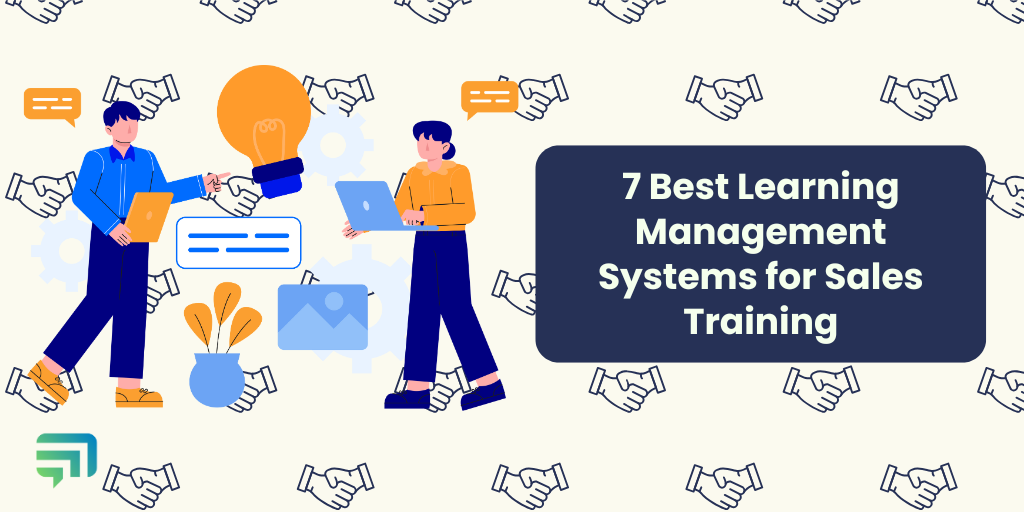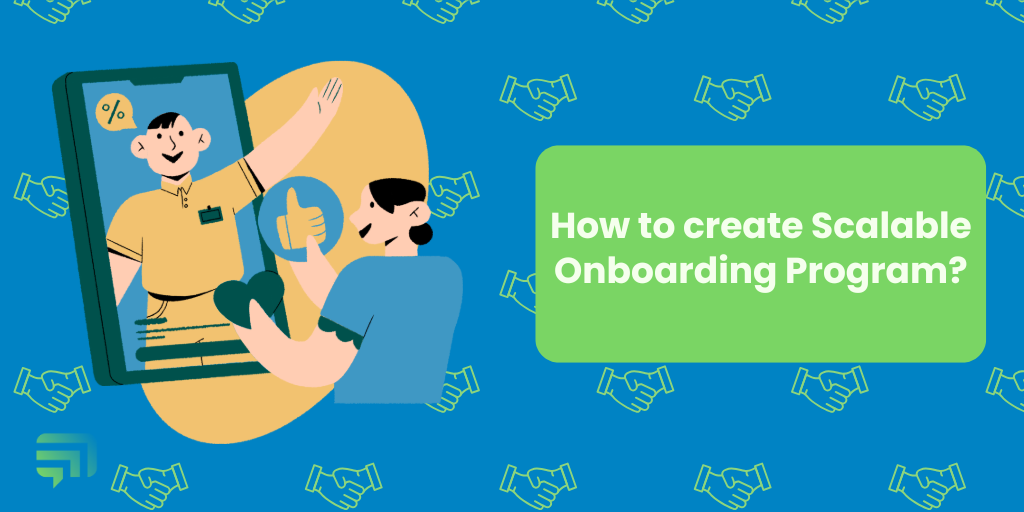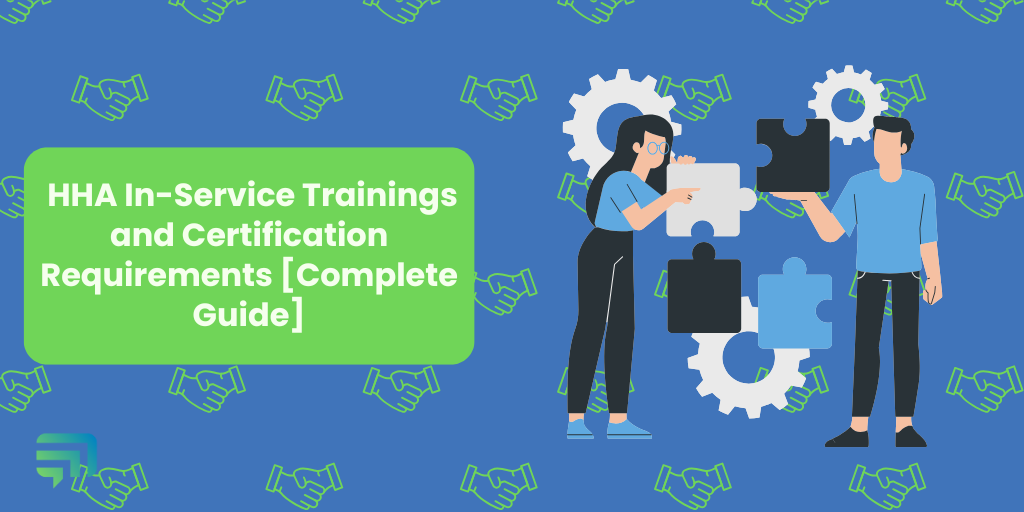Share this
Sales Enablement [The Beginner's Guide 2026]
by Tee Dang Mankiewicz on Feb 19, 2025 11:54:02 AM
Suppose you assign your executive a task and equip them with a set of resources, tools, and training content to accomplish it. It’s safe to assume they’ll complete the task faster and with greater confidence. That's exactly how sales enablement works. It empowers your sales team with the right content, tools, and sales enablement software to enhance performance and close deals more effectively.
When your organization invests in a sales enablement platform, it builds a scalable system that ensures your sales reps have access to training, playbooks, and buyer insights to close more deals. It leads to higher conversion rates, shorter sales cycles, and a more competent sales force.
How do you ensure that your team has everything they need to facilitate the buyer journey and boost revenue? An effective sales enablement strategy can address this concern. Are you wondering what sales enablement is and why it is considered a game-changer for growing businesses?
Sales enablement is the process of equipping your sales reps with the right content, knowledge, and technology to engage buyers effectively and close more deals. Whether it’s through an intuitive sales enablement platform or an integrated learning management system (LMS), or Brasstacks LMS, the goal is the same: to make selling smarter, faster, and more measurable.
What is Sales Enablement?
Sales enablement is the process of empowering the sales team with the right content, training, coaching, and technology to help them onboard new clients, enhance their selling skills, and close more deals.
A dedicated sales enablement platform or sales enablement software can streamline how sales reps access resources, practice pitches, and track performance. Sales enablement leaders play a critical role in driving this transformation. They focus on increasing productivity, aligning sales and marketing, and ensuring that every enablement activity makes an effective business impact.
From managing sales enablement tools to executing ongoing training and coaching programs, their goal is to create a culture of continuous development that translates directly into higher revenue and customer retention.
Why is Sales Enablement Important?
Sales enablement is essential for empowering your sales teams with the tools, resources, and knowledge to engage prospects and close deals effectively. It boosts individual productivity and drives higher win rates. Here's why sales enablement is important:
- Higher Revenue: It equips your teams with the right tools, content, and training to engage prospects, understand their buying patterns, and directly contribute to increased revenue.
- Improved Sales Performance: It provides structured responses and guidance. It helps sales reps to close more deals and boosts overall win rates by ensuring a confident salesforce.
- Better Buyer Experience: Contemporary buyers expect tailored and consultative interactions. Sales enablement empowers reps with insights and strategies to personalize conversations, fostering more meaningful and mutually beneficial engagements.
- Increased Sales-Marketing Alignment: It develops synergy in sales and marketing teams through shared strategy and seamless flow of information. It ensures consistent messaging and a stronger approach to driving higher revenue.
- Reduced Wasted Time: Instead of hunting for content or duplicating efforts, reps can access the right resources instantly. This efficiency frees them up to focus on selling and delivering value to buyers.
In the blog 5 Best Sales Enablement LMS, we have identified the most recommended LMS to enhance your sales enablement game.
The Foundation of Sales Enablement
Sales enablement is the strategic process of equipping the sales team with the resources, tools, content, and training they need to sell and accomplish their goals effectively. It includes everything from content creation and management to sales coaching and technology adoption, all aimed at enhancing sales effectiveness and driving revenue growth.
Do you want to stay ahead of the sales game? Try Brasstacks' sales management courses and learn on the go anywhere, anytime.
Popular Courses at Brasstacks:
- How to Read Customers like a Pro
- DISC Sales Training: Identify Buyer Types Using Verbal and Visual Cues
Who is responsible for Sales Enablement?
Many organizations acknowledge that sales enablement is a collaborative function. It’s a strategic process where leadership, marketing, and sales teams work together to drive performance and growth. In mature organizations, the effort is often led by a Sales Enablement Manager or Sales Enablement Leader, responsible for developing scalable sales training programs, curating high-impact sales enablement content, and ensuring that reps have access to the latest sales enablement tools and playbooks.
In larger enterprises, a dedicated sales enablement team leverages modern sales enablement software or an integrated sales enablement platform to align coaching, analytics, and sales readiness initiatives. These systems help ensure consistency, improve onboarding, and measure the impact of every enablement activity.
For teams without a formal sales enablement manager, the sales executives are responsible for overseeing the operations and ensuring that training programs and processes are executed effectively. Meanwhile, sales operations leaders play a vital role in translating leadership’s enablement vision into reality, implementing the right sales enablement technology, optimizing workflows, and enabling managers to track progress through data-driven insights.
Finally, the sales manager completes the cycle by overseeing sales enablement training, conducting regular coaching sessions, and reinforcing skills through continuous learning. The holistic approach ensures that enablement isn’t just a one-time initiative. It’s an ongoing sales enablement process that drives long-term revenue growth and team success.
What are the key components of Sales Enablement?
So, what exactly does sales enablement involve? Here are some of the key components:
1. Sales Training and Coaching
Sales enablement starts with training your sales reps to understand your products, your customers, and effective selling techniques. Regular coaching sessions help them continuously improve their skills and stay motivated.
Continuous training is vital for sales teams to combat the forgetting curve, re latest sales techniques, product knowledge, and industry trends. Sales enablement programs often include regular sales training sessions, workshops, and micro-learning modules.
Did you know that companies with dynamic sales coaching programs achieve 28% higher win rates? (source)
2. Effective Sales Content
Sales enablement involves creating, organizing, and distributing content that aids the sales process. This includes brochures, case studies, whitepapers, and more. The goal is to ensure that sales reps have access to relevant and updated information.
Your sales team needs access to high-quality content that they can share with prospects. This includes everything from product brochures and case studies to whitepapers and presentations. The right content can make all the difference in convincing a potential customer to buy.
3. Sales Tools and Technology
In today’s digital age, having the right tools is crucial. This includes Customer Relationship Management (CRM) systems, email automation tools, and analytics platforms. These tools help sales reps manage their leads, track their progress, stay organized, and make data-driven decisions.
4. Alignment with Marketing
Sales enablement involves aligning your sales and marketing teams so they can work together seamlessly. When sales and marketing are on the same page, they can create a consistent message and deliver a better experience for potential customers. Check out our guide to aligning sales and marketing for more insights.
Effective sales enablement requires seamless communication between sales and marketing teams. Regular meetings and feedback loops ensure that both teams are on the same page and can adjust strategies as needed.
5. Performance Analytics
Tracking and analyzing performance metrics is essential for continuous improvement. By understanding what works and what doesn’t, you can tweak your strategies and ensure your sales team is always moving in the right direction.

What is the role of Sales Enablement Manager?
A sales enablement manager plays a pivotal role in the success of a sales enablement program. They are responsible for implementing strategies, coordinating between departments, and ensuring that sales teams have the necessary resources. This role involves a mix of strategic planning, content creation, and data analysis.
How to develop a Sales Enablement Strategy?
Here's how you can create a sales enablement strategy:
- Assess Needs: Evaluate what your sales team currently has and what they need to succeed.
- Set Goals: Define clear, measurable goals for your sales enablement program.
- Create Content: Develop content that addresses the needs and pain points of your prospects.
- Implement Tools: Choose the right tools to support your sales enablement efforts.
- Train Your Team: Provide continuous training and support to your sales team.
- Measure Success: Regularly track and analyze the effectiveness of your sales enablement initiatives.

What are the benefits of Sales Enablement?
The contemporary seller’s world is dictated by data. But a constant stream of information can overwhelm sales professionals and impact their productivity. Sales enablement professionals create systems to leverage data and available resources. Consequently, here are some of the benefits of sales enablement:
Alignment
Sales enablement informs sellers about every team that could potentially contribute to sales in some shape or form. It could range from marketing and development to product and finance. Sellers learn more about the products from these other roles’ perspectives, while understanding how these roles can support the sale. Sellers can then align all the available resources and knowledge to guide their customers through the sales pipeline.
Consistency
Sales enablement trains sellers to speak a coherent language. This doesn’t mean everyone is parroting identical nomenclature, but you’ve provided the foundational training for sellers to then put their spin on it. It helps in gaining customers’ trust and converting leads.
Efficiency
The biggest payoff of sales enablement is that sellers can designate their time more wisely and productively. With everything they need to know about the product in front of them, they can direct their energy to developing mutually beneficial relationships that close deals. Once the company adds sales enablement software with real-time success metrics and sellers can easily tie their training to their day-to-day activities.
What are the challenges in Sales Enablement?
Despite its benefits, sales enablement can present challenges:
- Content Overload: Managing and organizing a large volume of content can be overwhelming.
- Adoption Issues: Getting sales teams to adopt new tools and strategies can be difficult.
- Measuring ROI: Quantifying the impact of sales enablement initiatives can be challenging.

Getting Started with Sales Enablement
Ready to dive into sales enablement and start reaping the benefits? Here are a few steps to get you started:
1. Assess Your Current Situation
Take a close look at your current sales processes, tools, and resources. Identify any gaps or areas where your sales team could use more support.
2. Develop a Strategy
Create a comprehensive sales enablement strategy that outlines your goals, the resources you’ll need, and the steps you’ll take to achieve them. Make sure to involve both sales and marketing in this process.
3. Invest in the Right Tools
Equip your sales team with the tools they need to succeed. This might include a CRM system, content management tools, and analytics platforms. Check out our list of essential sales tools.
4. Provide Ongoing Training
Sales enablement isn’t a one-time effort. Continuously train and coach your sales reps to keep their skills sharp and ensure they’re always up-to-date on the latest sales techniques and product information.
5. Measure and Adjust
Regularly track your performance metrics and make adjustments to your strategy as needed. This will help you stay on track and ensure your sales enablement efforts are paying off.
What are the Best Practices of Sales Enablement?
Sales Enablement is a collaborative effort and it helps in amplifying your sales efforts by equipping your team with importance resources and toolkits. Here are the benefits of Sales Enablement:
- Understand Your Audience: Know your prospects’ needs and pain points to create relevant content.
- Align Sales and Marketing: Ensure both teams work together towards common goals.
- Provide Continuous Training: Regularly update your sales team on new tools, techniques, and product information.
- Use Data Analytics: Leverage data to track performance and make informed decisions.
- Seek Feedback: Regularly gather feedback from your sales team to improve your sales enablement efforts.
What tools are needed for sales enablement?
A lot of organizations are reimagining the possibilities of what artificial intelligence and technology can take on. They're putting the seller's focus back on the human element, and letting automations lead the way. The business leaders are keen to break down barriers between sales and enablement, and bring them together into the same workflow.
That's why a sales enablement toolkit should integrate CRM data, sales enablement software and tools for learning management and coaching conversations. Here are the most important critical sales enablement tools:
CRM Software
A CRM gives you one single platform to track customer data and spot opportunities and risks in the sales pipeline. When you automate the flow of this customer data and connect it to enablement tools, you can also embed revenue milestones that auto-complete as reps hit them. It has advanced analytics and dashboard to track the progress.
Sales Enablement Tool
A high-functioning sales enablement platform manages and tracks all the training and coaching a sales team needs. The best sales enablement solutions enable sellers to learn and onboard new leads on the platform. It helps you target the KPIs, improve the structure content and activities for step-by-step training that guides reps what to do every day.
Call Coaching Tool
A conversation recording and coaching tool can help you find coachable interactions in sales conversations that you can use for training. The same tool can also help you track behavioral changes. For instance, you might set an enablement milestone for making 10 sales call that mention your new service bundle to help increase deal size. Call coaching tools help you track keywords that show you whether you're making progress toward the goal.
Learning Management System
How Sales Enablement can help your organization?

Sales enablement empowers your sales team to make informed choices and contribute to organizational growth. Here's how sales enablement can benefit you:
- Increased productivity: By offering the right tools and content, sales enablement helps reps sell more efficiently and effectively.
- Reduced sales cycle: Effective sales enablement can streamline the sales process, leading to a shorter sales cycle.
- Improved conversion rates: It empowers your team to sell better and increase the overall conversions, leading to higher revenue.
- Enhanced customer experience: Sales enablement can contribute to a more positive and consistent customer experience by ensuring sales reps are well-equipped to handle customer interactions.
Final thoughts - Next steps
Sales enablement is all about empowering your sales team with the right tools, resources, and training to succeed. By investing in sales enablement, you can boost your sales productivity, improve your win rates, and provide a better experience for your customers. So why wait? Start implementing sales enablement strategies today and watch your sales soar!
If you have any questions or need more tips on sales enablement, feel free to reach out. We're here to help you succeed! Happy selling! 🚀
🚀 Boost Your Sales Performance with Daily Microlearning!
Traditional sales training doesn’t stick—but bite-sized, daily microlearning does. With Brasstacks, sales reps receive actionable, SMS-based training that helps them apply sales enablement strategies in real time.
✅ Learn sales psychology techniques on the go
✅ Master DISC to identify & adapt to buyers instantly
✅ Train smarter with daily microlearning—no information overload
🔗 Related Resources:
- How to Apply DISC in Sales Conversations
- Microlearning for Sales: Why Short Lessons Drive Big Results
- Train Sales Reps Effectively with Mobile Learning
📌 Start improving your sales skills today! 👉 Enroll in our DISC Sales Microlearning Course
FAQs
What are the three pillars of sales enablement?
The foundation for sales enablement is built on three pillars: tools, content, and training. Platforms to automate sales tasks, centralize information, surface content, and provide valuable analytics and relevant content tailored to the decision-maker and deal stage that gets prospects closer to a "Yes."
How does sales enablement improve my team's performance?
Sales enablement improves sales performance by providing sales teams with relevant content, continuous training, and the right tools to streamline the sales process and better engage prospects.
What key features are important for Sales enablement tools?
The key features include a content repository, training analytics, sales performance, training and coaching modules, and personalization capabilities. Moreover, it also requires CRM integrations and mobile accessibility for an inclusive training solution.
What are the key aspects of sales enablement?
The process of sales enablement starts with clear revenue goals such as periodic increase in win rate, that can be influenced by key enablement efforts. Those efforts include new hire on boarding, on-going or continuous training efforts for existing employees, and one-off training for unique company or product moments.
Similarly, it is also important to manage and track the enablement on a single tool with unified data, ensuring the impact of training programs, and selected coaching methods.


7 Best LMS for Sales Training in 2026

How to Build a Scalable Onboarding Program

HHA In-Service Training [Standards and Guide]
Share this
- Employee training (14)
- LMS (9)
- Learning management system (6)
- Manager training (6)
- Microlearning (6)
- Sales Training (6)
- Company culture (5)
- Employee engagement (4)
- Compliance training (3)
- Productivity (3)
- AI prompts (2)
- Hiring (2)
- Onboarding (2)
- Checklist (1)
- Communications (1)
- Guides (1)
- Processes (1)
- Skills gap analysis (1)
- Toolkits (1)
